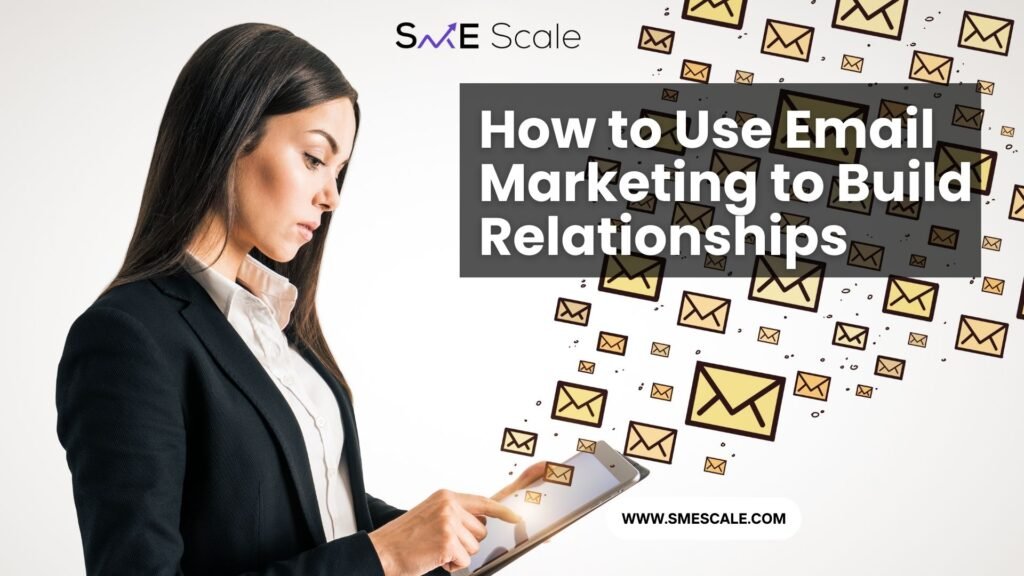
Email marketing remains one of the most cost-effective and impactful ways for SMEs to engage with their audience, foster trust, and drive sales. When executed correctly, it can turn casual subscribers into loyal customers and advocates for your brand.
Let’s explore the fundamentals of relationship-building through email marketing, supported by a real-life case study, and uncover the psychological principles that make email campaigns successful.
Why Email Marketing Works for SMEs
Direct Communication: Emails allow businesses to speak directly to their audience in a personalized manner.
High ROI: With a return on investment of $36 for every $1 spent, email marketing is a must-have for SMEs.
Segmentation and Personalization: Tailored messages resonate more effectively with different audience segments.
Long-Term Engagement: Regular communication builds a sense of connection and trust.
Steps to Build Relationships Through Email Marketing
Build a Quality Email List
Offer incentives like free resources or discounts to encourage sign-ups. Focus on quality over quantity to ensure a receptive audience.
Segment Your Audience
Divide your email list into groups based on demographics, purchase behavior, or engagement levels. This allows for highly targeted messaging.
Create Valuable Content
Share tips, insights, and updates that provide real value. Avoid overly promotional content to keep your audience engaged.
Leverage Automation
Use tools to send welcome emails, follow-ups, and re-engagement campaigns automatically, ensuring consistent communication.
Encourage Two-Way Communication
Include calls-to-action that invite replies, surveys, or feedback to foster interaction.
Case Study: Building Relationships Through Email
Lisa, the owner of a home decor store, wanted to create deeper connections with her customers. With SME Scale’s help, she implemented a strategic email marketing campaign:
Welcome Series: New subscribers received a series of emails introducing the brand’s values and best-selling products.
Personalized Recommendations: Based on purchase history, Lisa sent tailored suggestions to her customers.
Engaging Content: Monthly newsletters featured DIY tips, decorating ideas, and exclusive discounts.
Results? Lisa saw a 40% increase in repeat purchases and a 25% growth in email list subscribers within six months. Customers praised the personalized approach and engaging content, strengthening their loyalty to the brand.
The Psychology Behind Email Marketing Success
Reciprocity Principle:
Offering free value (like tips or discounts) encourages recipients to reciprocate by engaging with your brand.
FOMO (Fear of Missing Out):
Limited-time offers or exclusive deals in emails create urgency, prompting immediate action.
Consistency and Familiarity:
Regularly appearing in a subscriber’s inbox builds familiarity and trust over time.
Personalization:
Tailored messages make recipients feel valued, fostering stronger relationships.
Measuring Email Marketing Success
Track these metrics to evaluate the effectiveness of your campaigns:
Open Rates: Measure the percentage of recipients who open your emails.
Click-Through Rates: Track how many people click on links within your emails.
Conversion Rates: Measure actions taken, such as purchases or sign-ups.
Unsubscribe Rates: Monitor how many recipients opt out to refine your strategy.
Conclusion: Building Lasting Connections Through Email
Email marketing is a powerful tool for SMEs to nurture relationships, drive engagement, and boost sales. By focusing on personalization, consistency, and value, businesses can create campaigns that resonate with their audience. As Lisa’s case demonstrates, a strategic approach to email marketing can lead to significant growth and long-term loyalty. With SME Scale’s expertise, your business can unlock the full potential of email marketing.

